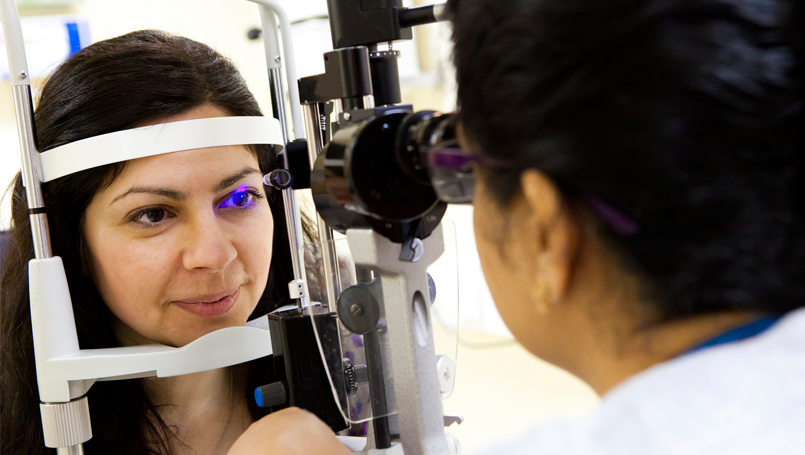Thursday, May 25, 2017

When was the last time you had your eyes checked?
If you can't recall, or know it's been too long, what are you waiting for?
May is Healthy Vision Month. The National Eye Institute is putting emphasis on women's eye health because of these surprising statistics:
- Women make up two-thirds of all people living with blindness or visual impairment from diseases such as age-related macular degeneration, glaucoma and cataract.
- Among women age 40 and older in the U.S., 2.7 million are blind or visually impaired.
Taking care of your eyes ensures you can watch your children and grandchildren grow up and walk down the aisle. You can retain your independence longer. You can keep up with many of your hobbies, future plans and, most importantly, look back through family albums.
The National Eye Institute has a few steps you can take to ensure good visual health.
- Get your eyes examined, complete with dilation. This gives your ophthalmologist a good view of what's going on with your eyes. An eye exam without dilation is akin to trying to find something in your bedroom by looking through a keyhole.
- Protect your eyes. When you're doing yard work, home improvements or playing sports, be sure to wear safety goggles made of polycarbonate.
- Wear sunglasses. Bright, sunny days put strain on your eyes. When you're shopping for shades, find a pair that blocks 99 to 100 percent of UVA and UVB rays.
- Make healthy choices. Everything you put in your body has an effect on the whole system. Eating a healthy diet and exercising regularly doesn't just help your big muscle groups, it helps keep your peepers looking sharp.
- Get your family history. As grandma aged, did she have the milky eyes of cataracts? Does macular degeneration or glaucoma run in the family? Ask. Many eye diseases are genetic and can pass through the generations. When you talk about family history, don't stop at cancer and heart disease. Ask about the eyes, too.
The good news is most vision loss can be prevented with proper screening and a diligent lifestyle.
If you were diagnosed with an illness that can effect the eyes, such as diabetes, be sure to talk with your primary care physician and your eye doctor. Regular screenings can help you seeing the full picture for years to come.
